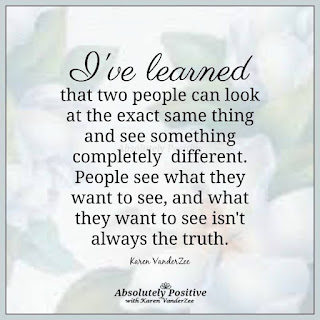Be Kind and Merciful
“For
gracious and merciful is he,
Slow in
anger, rich in kindness,
And relenting
in punishment.”
Book
of Joel, Chapter 2
Many
of us, as codependents, enter recovery bitter and angry. We feel like we have
been used and abused by so many people, and these negative feelings make it
hard for us to fathom working Step 4 of the 12 Steps. So we are sometimes
inclined to practice self-righteousness instead of practicing mercy.
When
we enter this self-righteous mode we are quick to point out how everyone else
in our lives sinned against us, abused us and abandoned us, and we subconsciously
use are self-righteousness to hide our own sins and character defects. We
become blind to them all. I know I did. The first time I looked at Step 4, I
thought to myself “what did I ever do wrong? I’m not the abuser. I’m the abused.”
At that point in recovery, it didn’t occur to me that I had been secretive,
manipulative and controlling. Nor did it occur to me that I had lied, spied and
done whatever I had to do to get what I wanted from the very people I was now
so angry with.
Owning
our own “sins,” failures and character defects is a necessary step toward
inner-healing, as well as toward the healing of our fractured relationships. We
need to own our failures graciously, however. We need to be merciful, slow to
anger, rich in kindness and relenting in punishment toward ourselves.
If
we are able to treat ourselves with mercy and kindness as we examine our
mistakes, it will give us a new perspective on the mistakes other in our lives
have made. We may be angry with someone because we know they have lied to us.
If so, we need to examine the situation through the eyes of mercy and
understanding.
First,
we need to ask ourselves “have we made assumptions about the lie and about why
they lied to us?” (Many times our bitterness and anger are based in assumptions
and not in facts.) Or have we given the other person the ability to fully
explain why they lied to us? Second, have we examined what role we may have
played in “the lie?” Could they have lied to us out of fear? Has our anger been
a problem? Were they afraid if they told us the truth that we would explode all
over them? Have we exasperated their fear of abandonment by withholding
affection as a punishment for them? Could they have told us the lie because
they were afraid we’d simply walk away and leave them behind?
The
third thing we need to ask ourselves is “have I ever lied to them? If so, am I
not just as guilty as they are?” The better able we are at compassionately owning
our own mistakes, the better we will be at forgiving the same mistakes that
others have made against us.
Every
day we have a choice to come from a self-righteous place or a merciful one. Coming
from a merciful place will help us to mend our fractured relationships with ourselves
and with others. Coming from a self-righteous place will keep us trapped in
denial and in addictive acting-out. Today let’s choose to treat ourselves and
others with mercy and kindness.




Comments
Post a Comment